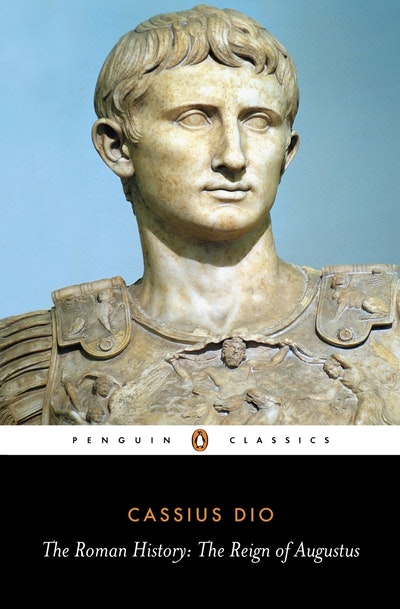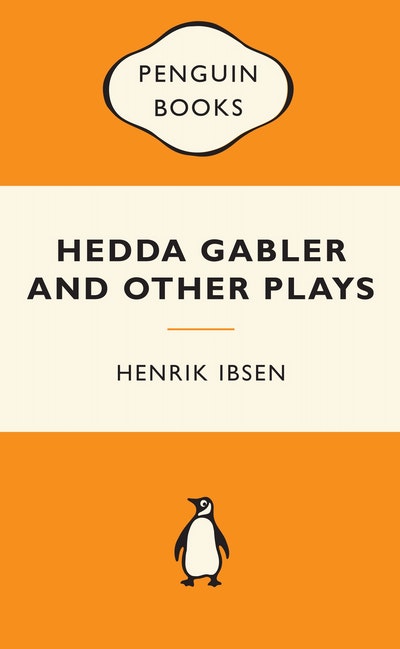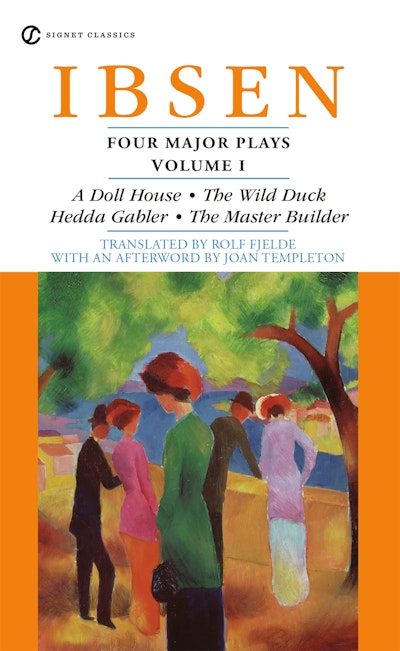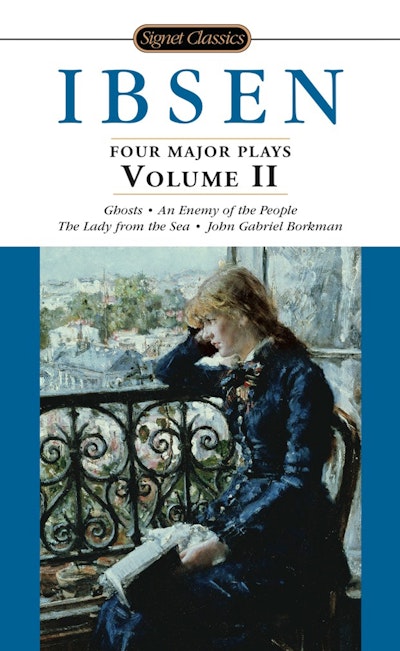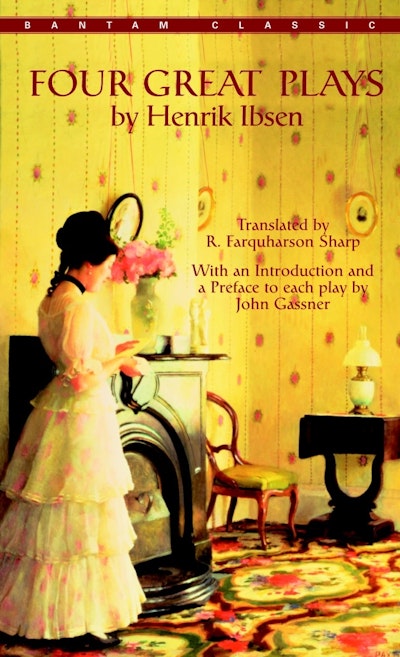- Published: 3 December 2019
- ISBN: 9780141194578
- Imprint: Penguin Classics
- Format: Paperback
- Pages: 448
- RRP: $27.99
Hedda Gabler and Other Plays
The final volume in the new Penguin Ibsen series: superb modern translations of four of Ibsen's greatest plays
In these four unforgettably intense plays, Henrik Ibsen explores the complex nature of truth, the tension between freedom and responsibility, and the terrible pull that the past exerts over the present. In The Wild Duck an idealist destroys a family by exposing the lie behind his friend's marriage. In Rosmersholm, a respectable man is driven to extremes by guilt over his wife's death, while in The Lady from the Sea a woman is caught between her family and the enticement of the wild sea. And in Hedda Gabler, one of Ibsen's most famous and vivid anti-heroines struggles to break free from the conventional life she has created for herself, with tragic results.
- Published: 3 December 2019
- ISBN: 9780141194578
- Imprint: Penguin Classics
- Format: Paperback
- Pages: 448
- RRP: $27.99












































































































































































































































